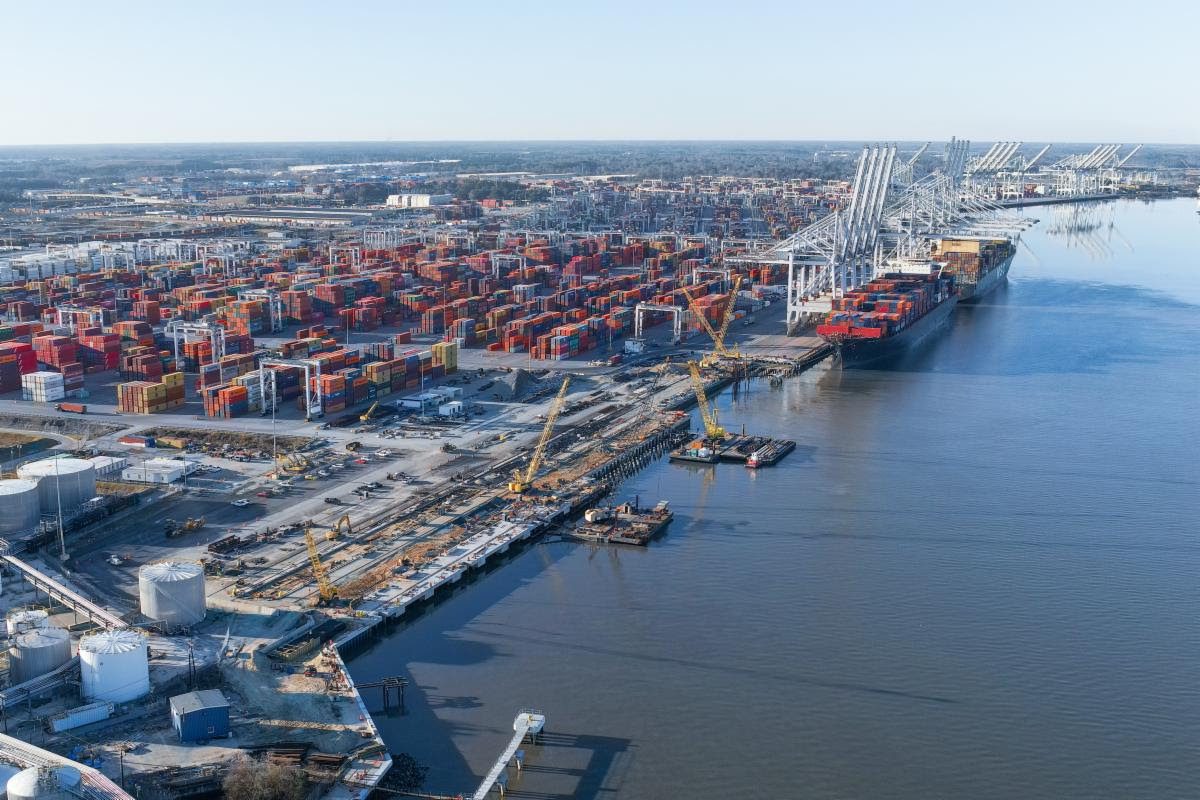U.S. Customs Revenue Tops $100 Billion for First Time Amid Tariff Surge
US revenue from customs duties this fiscal year surpassed $100 billion for the first time, reflecting higher tariffs imposed by the Trump administration.

New data from supply chain technology provider project44 reveals a significant uptick in U.S. imports from China during this year’s ocean peak season.
Despite ongoing trade tensions and the introduction of new tariffs, U.S. companies have shown resilience in maintaining their supply chains, with imports from China increasing by nearly 6% compared to the same period in 2023.
This unexpected surge comes in the wake of the Biden administration’s implementation of tariffs in September, including a 100% duty on Chinese electric vehicles, 50% on solar cells and 25% on steel, aluminum, EV batteries and key minerals. According to Project44, tariffs have prompted many shippers to pull freight forward as a cost mitigation strategy.
Industry experts suggest this trend may continue, particularly with the looming threat of additional tariffs from the incoming Trump administration.
The data paints a picture of a dynamic shipping landscape, with China reinforcing its position as a manufacturing powerhouse. Despite global efforts to diversify supply chains following COVID-19 disruptions, China still accounts for approximately 40.7% of all U.S. imports, according to Project44. This dominance is further exemplified by the increased activity at major Chinese ports, with Yantian, Shanghai, and Ningbo seeing the most significant growth in export volumes.
Interestingly, this shift has come at the expense of other manufacturing hubs. Vietnam, which had been gaining ground in recent years, experienced a nearly 4% decrease in import volume during this peak season. However, Project44 cautions that this decline may be temporary, potentially offset by increased post-peak imports from China driven by tariff concerns.
On the domestic front, U.S. ports are witnessing their own shifts. The West Coast, particularly the Los Angeles/Long Beach area, is regaining its prominence, now handling nearly 40% of U.S. imports from June through October. This marks a significant return of volume to these ports after a period of increased East Coast activity.
Despite challenges such as labor strikes and extreme weather events, East and Gulf Coast ports have shown remarkable stability. Key locations like New York, Savannah, Houston, and Charleston experienced only minor volume decreases, suggesting that shippers have not drastically altered their routing plans in response to these disruptions.
Project44’s data also highlights the resilience of the global supply chain. Despite the various challenges faced during the 2024 ocean peak season, including tariffs, port strikes, and global trade tensions, companies have largely managed to maintain steady holiday inventory levels.
As the industry continues to evolve, this data suggests that while global logistics face ongoing challenges, supply chains are adapting effectively to maintain stability through peak demand periods. The ability of shippers to navigate these complex waters will likely play a crucial role in shaping the future of global trade.

Sign up for gCaptain’s newsletter and never miss an update

Subscribe to gCaptain Daily and stay informed with the latest global maritime and offshore news


Stay informed with the latest maritime and offshore news, delivered daily straight to your inbox
Essential news coupled with the finest maritime content sourced from across the globe.
Sign Up